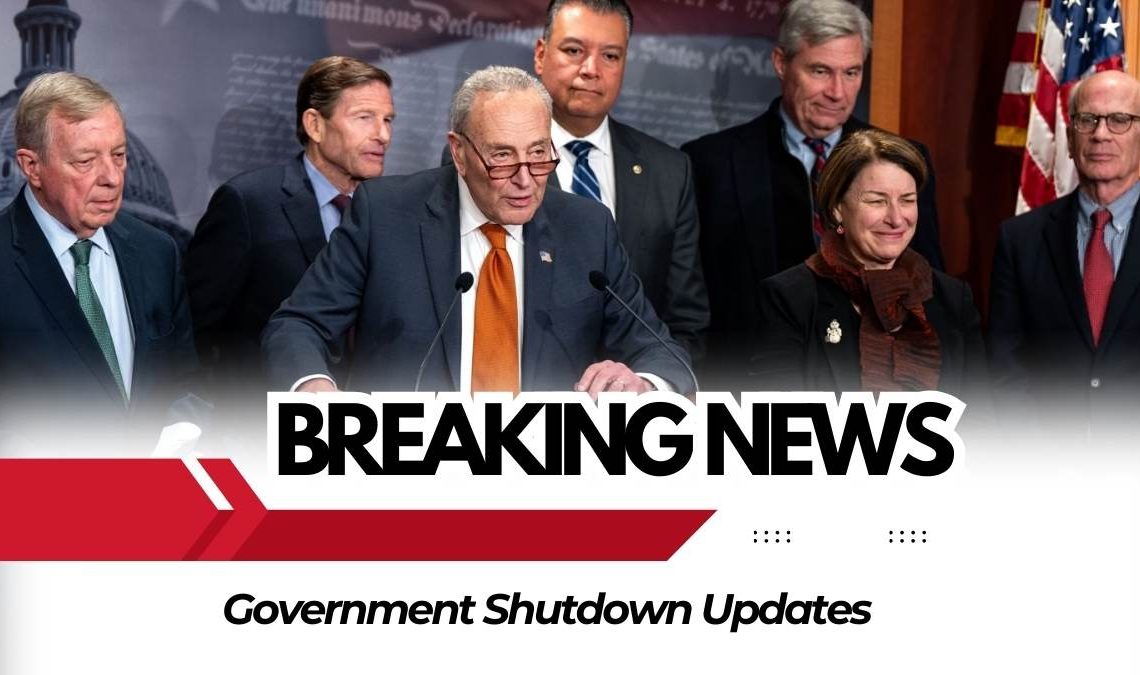
Senate Votes Today On Government Shutdown— A bill to extend government operations for three more months has been transmitted to President Joe Biden’s desk after the Senate granted its final passage very early Saturday morning, thus making Christmas without a government shutdown possible.
The approval margins were 85-11. It had been passed by the Republican-led House only hours earlier.
The White House said President Biden is expected to sign the bill on Saturday, thereby avoiding millions of unpaid government employees, such as air traffic controllers, Border Patrol agents, and U.S. troops.
However, he will do this after the midnight deadline, after the last vote of the day has been officially passed.
With just a single member present, in addition to all opposition from Republicans, the House vote was 366-34.
It was early Saturday morning when the Office of Management and Budget issued a statement saying that “It halted the preparations for shutdown given that there is a very high confidence that Congress is imminent with the relevant appropriations and that the President will sign the bill on Saturday.”
“This evening brings good news to America from the Senate as there won’t be any shutdowns”, stated Chuck Schumer– The Senate Majority Leader.
This bill provides disaster relief funds to aid in storm recovery and other natural disasters-with a whopping amount of $100 billion. It also extends the existing government financing up to March 14 of the next year.
In addition, it allocates $10 billion for farmers as subsidies. However, it did not include anything for the debt ceiling, which Trump insisted upon. House Republicans promised to address this issue with another tax bill once Trump takes office.
Table of Contents
Musk and Trump’s Impact on the Bill
Both President-elect Donald Trump and tech billionaire Elon Musk have voiced strong reactions to the bill.
Trump early on Friday posted, “If there’s to be a shut-down of the government, let it happen now.” Trump insisted that Congress should increase or eliminate the debt ceiling.
Musk had also expressed dissatisfaction with the law. He further inflamed resistance within the Republican Party with mind-twisting tweets on X (formerly Twitter) in the form of proclaiming that the proposal was “criminal and outrageous”.
Together, the two had been advocating for a more efficient approach to government spending to save up to $2 trillion.
What Is A Government Shutdown? Shutdown’s Potential Impacts
According to records, January 2019 was the last month when the government shutdown in the United States was recorded. It would be followed now as midnight looms without a financial agreement.
A shutdown is a situation when the government will keep continuing with essential services like law enforcement, medical care, and border protection, but, as expected, all such unessential services- from national parks to student loans and the food stamp program will cut back on or drop completely.
Past shutdowns, notably the longest-ever one in 2018-2019, proved exceptionally damaging to the economy, with estimates as high as $11 billion in lost economic output, according to the Congressional Budget Office. Therefore, a shutdown’s impact would be most severe due to the interruption during holidays.
What Will Happen in Congress Next?
The way this funding bill moves to the Senate, it will continue to keep Johnson, the White House speaker under pressure from his party.
And though the Senate would likely approve the bill, there will still not be any assurance on how long Johnson will continue to serve as Speaker.
With growing dissatisfaction from Republicans, it will take nearly every House Republican backing for Johnson to remain as leader when the new Congress meets in January.

